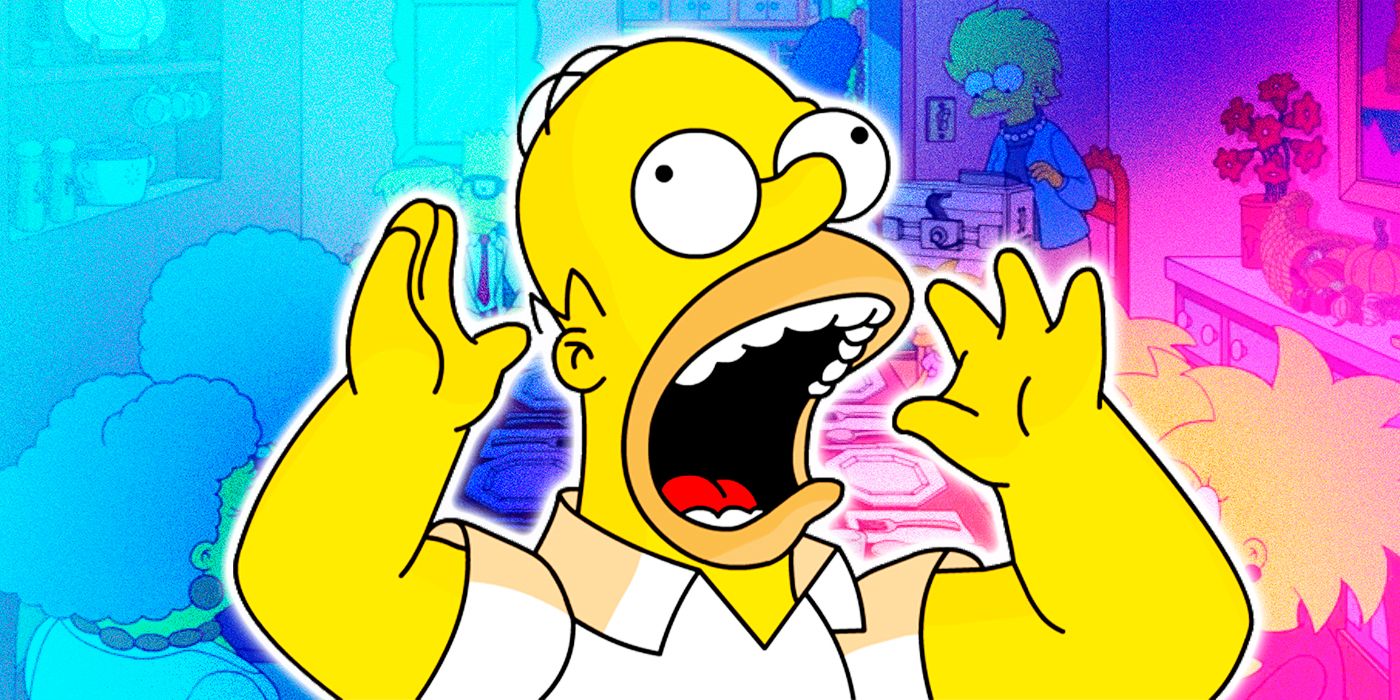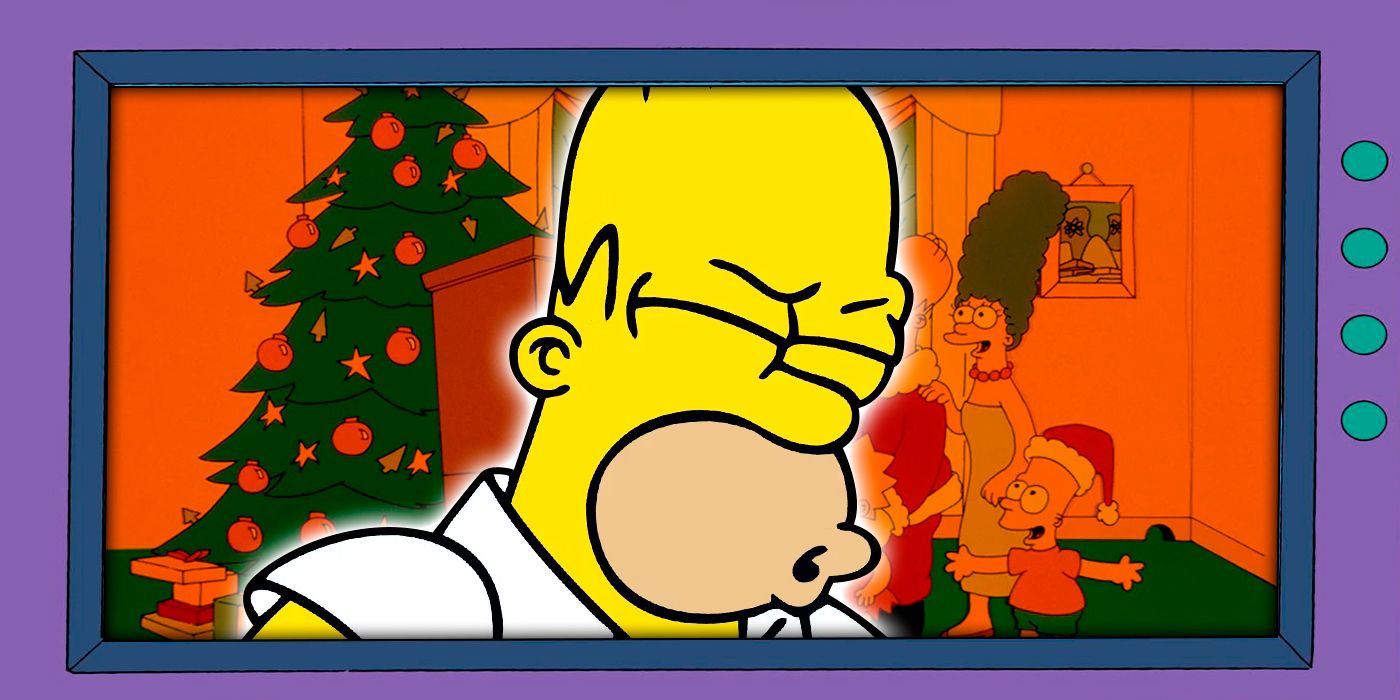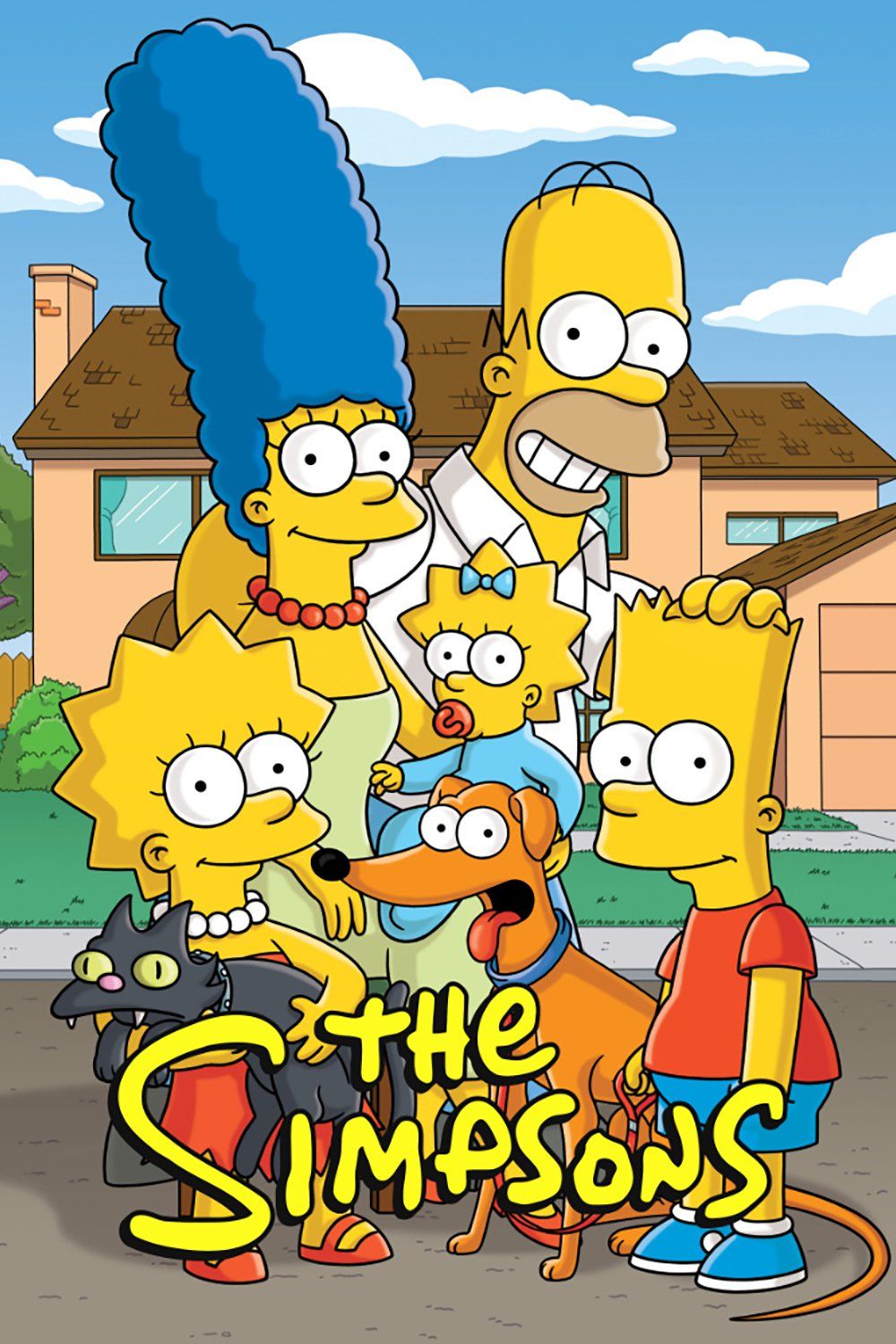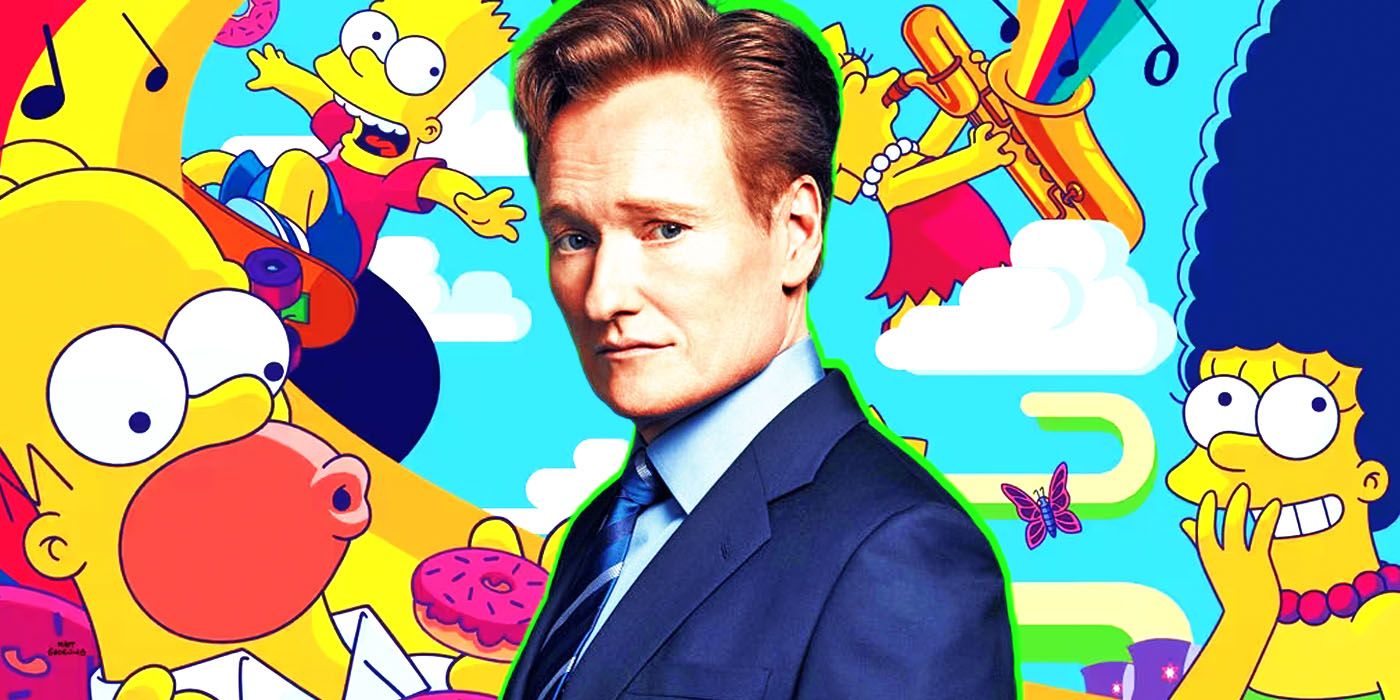Quick Links
Summary
- Conan O'Brien pitched a dark ending for The Simpsons where Marge leaves Homer, highlighting their dysfunctional marriage.
- The show's early success relied on satirizing the perfect family dynamics of other sitcoms at the time.
- Homer's selfishness and reckless behavior have pushed Marge to the breaking point multiple times, leaving viewers wondering why she stays with him.
Before Conan O'Brien became famous taking over the Late Night talk show from David Letterman in 1993, he was a successful screenwriter in the early years of The Simpsons. His episodes are iconic, including "New Kid on the Block" and "Marge vs. the Monorail" from Season 4, along with Season 5's "Homer Goes to College." His influence on the series, and its unique comic tone is undeniable, and his presence in the writer's room early on helped cement the relationships between key characters.
Released in 2010 to coincide with the show's 450th episode, The Simpsons 20th Anniversary Special - In 3-D! On Ice! was a special tribute to the show. During the retrospective, Conan O'Brien ended up pitching a ridiculously dark ending for the long-running franchise that would be a genuinely dramatic conclusion to one of The Simpsons' longest-running subplots. In some ways, it's unthinkable, and yet it also makes perfect sense considering the nature of their marriage. Sooner or later, the series will end, and when it does, O'Brien's idea could certainly leave a memorable impression. It's also an acknowledgment of one of the show's elephants in the room that isn't always acknowledged onscreen: Homer and Marge are a deeply dysfunctional couple.
Updated on February 7, 2024 by Robert Vaux: The Simpsons is well over three decades old, and the pop culture world where it began has undergone a considerable number of changes over the years. Homer and Marge were created in part as a response to prevailing sitcom wisdom at the time. The article has been updated to discuss a little more of that history, as well as citing additional evidence that theirs isn't necessarily a marriage worth saving. Its formatting has been updated to reflect CBR's current formatting guidelines.
Homer and Marge Split-Up in O'Brien's Hypothetical Finale
|
Name |
Played by |
Number of Appearances |
First Appearance |
Date |
|---|---|---|---|---|
|
Marge Simpson |
Julie Kavner |
760+ |
"Good Night," (Short on The Tracey Ullman Show) |
April 19, 1987 |

What is Homer's Final Fate on The Simpsons?
The Simpsons quietly revealed the final fate of Homer Simpson, and his way of passing might be the perfect ending for the character.The Simpsons 20th Anniversary Special - In 3-D! On Ice! closed out with O'Brien being asked how he would end the series once and for all. He deadpan pitched the most somber possible conclusion to the show. Marge would stop and look at her husband -- and finally decide that Homer has screwed up their lives too many times to ever be taken seriously. Noting that the sequence would be "humorless" and played completely for dramatic effect, O'Brien's ending to the show would have seen Marge declare Homer to be a threat to humanity as a whole before leaving him forever. She leaves Homer alone as the credits roll. O'Brien's ending is clearly a gag, meant to be such a radically dark pitch that it would never actually happen. But it does speak to Homer and Marge's marriage, which has consistently proven to be one of the show's primary storylines.
When The Simpsons began in the 1980s, perfect families were the dominant subject of most sitcoms. Driven by the sky-high success of The Cosby Show, they presented impossibly idealized marriages with well-behaved children who rarely quarreled with their parents. That proved a ripe ground for satire, which The Simpsons took advantage of, along with other shows of the era like Married... with Children. The families in these shows revealed more dysfunction and human failings, and in the case of The Simpsons, that helped make it more relatable to general viewers.
The Impact of The Simpsons' More Realistic Approach to Life on TV
Controversial Topics On The Simpsons Over the Years
|
Hot Button Topic |
Episode |
Air Date |
|
Homophobia |
Season 8, Episode 15, "Homer's Phobia" |
February 16, 1997 |
|
Cultural Appropriation |
Season 13, Episode 15, "Blame It On Lisa" |
March 31, 2002 |
|
Assault |
Season 2, Episode 12, "The Way We Was" |
January 31, 1991 |
|
Child Abuse |
Season 1, Episode 1, "Simpsons Roasting On an Open Fire," plus countless other episodes |
December 17, 1989 |
Homer was far from a perfect dad, Bart was a juvenile delinquent, Marge was an unconscious enabler, and Lisa's quiet brilliance was largely ignored. They felt much more like a real family than Cosby's squeaky-clean Huxtables, or Family Ties' cheerfully chaotic Keatons. It proved key to The Simpsons' early success, as well as establishing the dynamic between Homer, Marge, and their three kids. Along with that came a huge amount of dysfunction by design. The most obvious example is Homer's propensity to choke his son, which has earned its share of controversy over the years. Child abuse was considered a taboo subject for comedy, even then, but The Simpsons often flew in the face of convention. With its animated format, it could get away with jokes that a live-action series couldn't, and its early attempts to hit back against the paternalistic conventions of the time often took it into hotly debatable territory. (Barney Gumble's alcoholism is a similar attempt to mine humor from an off-limits topic.)
That extended to Homer and Marge's marriage, which was always an exercise in emotional dysfunction. Homer is largely selfish and bumbling: launching ill-conceived schemes on a whim that often end up costing the family dearly. Even worse, he can't function as an adult, and depends on Marge for nearly everything. Though he has moments where he has supported her and expressed gratitude for everything she's done -- and he certainly hasn't cheated on her, despite moments when temptation looms -- he's largely too self-absorbed to think about his wife's feelings very often. He's known to berate her as well, especially when she branches out and tries new things.
For example, in Season 4, Episode 2, "A Streetcar Named Marge," Marge earns a role in a local musical production of A Streetcar Named Desire, only for Homer to actively belittle the effort. Marge ultimately enables his behavior by forgiving his idiocy in the end, and largely forgetting about it by the next episode. That pattern continues throughout the series. In the meantime, she almost single-handedly runs the household, while raising all three of their kids with minimal input from her husband. (Love for her children is another reason she stays with Homer.) That includes financial matters as well. In Season 16, Episode 13, "Mobile Homer," it's revealed that she pays the bills and handles the accounting because Homer is such a spendthrift.
Homer and Marge's Tumultuous Relationship Throughout The Simpsons

The Simpsons Showrunner Reveals the Story Behind First Episode's Most Memorable Line
The Simpsons showrunner Al Jean gives the backstory of a memorable line from the show's first episode and how it became a reality.Needless to say, Homer's failings as a husband are a recipe for disaster, and it has taken its toll across the course of the series. Indeed, the pair has been pushed to the breaking point on multiple occasions, with Marge openly threatening to leave Homer behind and kicking him out of their house. The theme of their troubled marriage was considered for the primary plot of The Simpsons Movie, and ultimately became a major emotional thought line for the story that eventually grounded the film. It also crops up in the series itself, most notably in Season 5, Episode 22, "Secrets of a Successful Marriage." When Homer reveals intimate secrets about their marriage to an adult education class, Marge throws him out. He ends up living in Bart's tree house as a borderline vagrant. Once again, Marge takes him back after he offers her "complete and utter dependency," which pretty much ensures that the dysfunctional cycle will continue indefinitely.
That's at least partially by design, as the couple's copious problems often became fertile ground for subversive comedy. But it also begs the questions: Why does Marge stay with him, and how much should one person have to endure for the sake of a marriage that clearly isn't healthy? Homer's often reckless decisions regularly endanger everyone around him -- he's put the whole town at risk on a disturbingly regular basis -- and he's thrown the Simpsons' lives into disarray on a whim multiple times. Marge has repeatedly confronted him over these issues, and each time Homer says he'll be a better husband and father -- only to fall back into his old habits by the next episode. Marge has had plenty of valid reasons for wanting to leave him over the years, and it's only their love and their family that keep them together. Ending the show by breaking up Homer and Marge would be a devastating conclusion, but one that would make sense, given their history.
The pair can't do it while the show is running: breaking up would shatter the centerpiece of the whole series, and possibly hasten its demise. But O'Brien's sense of dramatic closure is spot-on. While it may have been a joke ending, it's a testament to the emotional heft of one of the show's core relationships. It would certainly be one of the most unlikely and dark ways to conclude the arcs for two of the show's most important characters. But it would be hard to call it unwarranted after everything Marge has been through for Homer's sake. Indeed, it might be one of the few things to give the long-running show some proper closure: letting it end rather than simply stop.

The Simpsons
The satiric adventures of a working-class family in the misfit city of Springfield.
- Release Date
- December 17, 1989
- Creator
- James L. Brooks, Matt Groening, Sam Simon
- Cast
- Dan Castellaneta , Nancy Cartwright , Harry Shearer , Yeardley Smith , Julie Kavner , Hank Azaria , Pamela Hayden , Tress MacNeille
- Main Genre
- Animation
- Seasons
- 36
- Production Company
- Gracie Films, 20th Television Animation, Fox Television Animation, The Curiosity Company
- Number of Episodes
- 761

